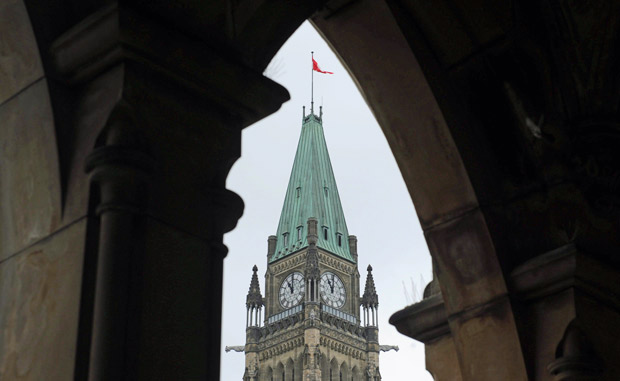OTTAWA – Conservative MPs are accusing the independent commission charged with redrawing Saskatchewan’s riding maps of bias and ignoring evidence.

The electoral boundaries commission recommended last year that more ridings be made exclusively rural or exclusively urban instead of hybrids that branch out from cities into the countryside.
The commission was headed by Saskatchewan Justice Ronald Mills, political scientist John Courtney and farmer David Marit, who is also the president of the Saskatchewan Association of Rural Municipalities.
Marit dissented from Mills and Courtney on the proposed changes to the electoral map, as does the Conservative party.
“I actually think the commissioners got bad advice from a small group of people early in the process who presented themselves as experts,” Tory MP David Anderson told the procedure and House affairs committee, referring to political scientists who made early submissions.
“Two members of the commission appeared to have embraced the proposal, and skillfully ignored the vast number of presentations.”
Theoretically, the NDP and Liberals benefit from more urban ridings, while the Tories do better when rural areas are included. The Conservatives were accused of trying to sway the outcome of the independent commission’s report by paying for automated calls to Saskatchewan residents.
But those political issues largely didn’t arise when MPs hashed out the commissions’ report. Conservative MPs who testified Tuesday said the changes were simply unnecessary, and in some cases made their ridings unwieldy and not responsive to constituents.
- Some 2019 candidates ‘appeared willing’ to engage with foreign interference: Hogue inquiry
- Princess Anne to help commission new navy vessel in B.C. ceremony
- Foreign interference ‘undermined’ public confidence in elections: inquiry
- Canada, Manitoba to develop Red Dress Alert for missing Indigenous women and girls
In some cases, they said, an MP might have to be based in a city outside of their riding just to be accessible to the largest number of people in a big rural riding.
New Democrat MP Nathan Cullen asked the MPs whether they were suggesting the commission came in with an inherent bias to create more exclusively urban ridings.
“I’d say they did,” said Conservative Ed Komarnicki. He went on to mention the political scientists who had made proposals to the commission.
“In the end, they said the majority of the people they heard from after that were opposed to the rural-urban mix, and they chose to reject that. You would think that they would take the position of the people of Saskatchewan and the presenters who actually came and presented in person into account.”
The committee had a curious dynamic Tuesday where the NDP, which currently has no MPs in Saskatchewan, sided with the lone Liberal MP in the province, Ralph Goodale.
Goodale defended the work of the commission, and argued it only made sense to group urban constituents together, and rural constituents separately, as they have different interests.
“Not one single Saskatchewan riding is distinctively urban at the present time, not one. All 14 are either purely rural or mixed,” said Goodale.
“To address that, the commission produced a measured, reasoned and balanced plan. They have not gone whole hog in the other direction. They have proposed a variety of ridings that accurately represent the vast diversity that is Saskatchewan’s reality.”
The committee can report its findings back to the independent boundaries commission, but it is ultimately the commission that makes the final decision – a safeguard meant to prevent gerrymandering by politicians.



Comments